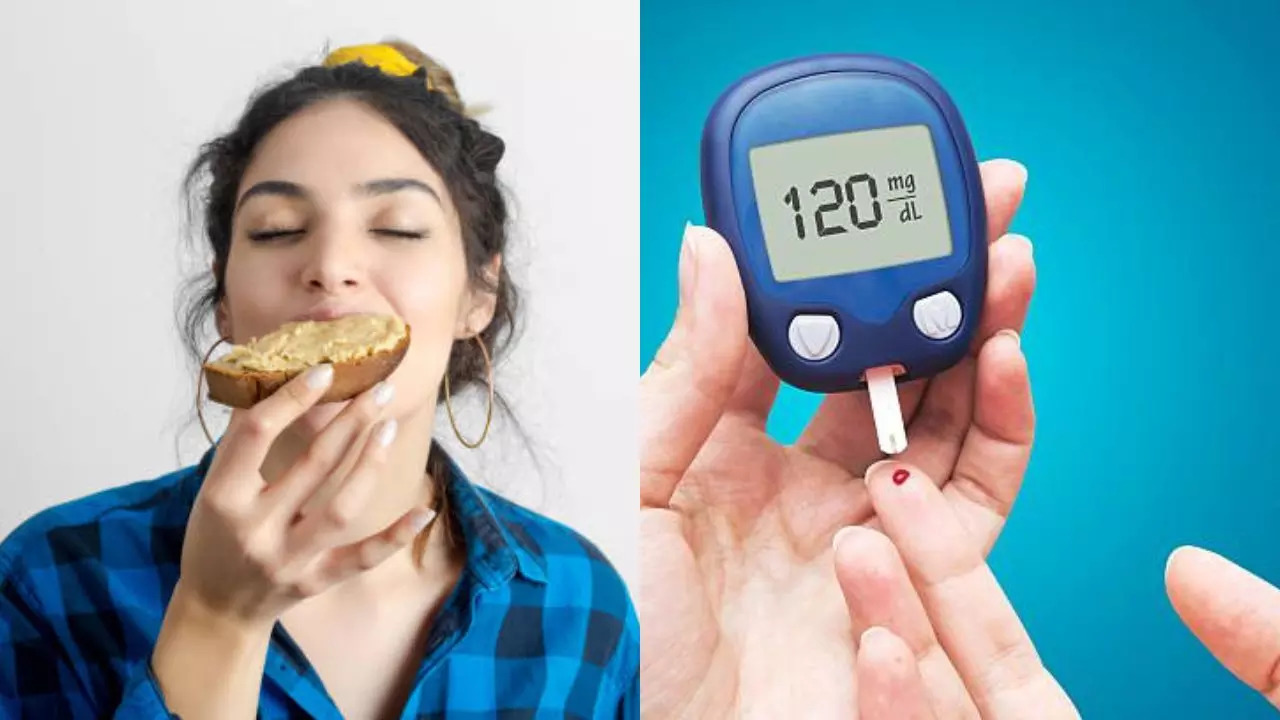Contents
Eating sugar only causes obesity, not diabetes; Here’s what experts say is the main reason behind high blood sugar levelsHow do salty foods increase the risk of diabetes?How exactly does salt increase the chances of diabetes?Processed salty foods are the main culpritOther risk factors for diabetesbody weightexercise and workoutsmokingsleep disordersgenetics
-
news
-
Health
Eating sugar only causes obesity, not diabetes; Here’s what experts say is the main reason behind high blood sugar levels
Contrary to the popular belief that sugar consumption alone causes Type 2 diabetes, an expert says frequent consumption of salty foods can cause this debilitating disease. According to Dr. Vishakha Shivdasani, all salty, salty carbohydrates are converted into sugar in your body. Read on to know what else causes high blood sugar levels, which is dangerous in the long run.

Salt consumption may increase the risk of developing type 2 diabetes; This is mainly due to its ability to increase blood pressure
“No, Eating sugar does not cause diabetes,
Stunned! According to a health expert, eating sugar in excess does not cause diabetes but obesity and weight gain. Lifestyle disease expert Dr Vishakha Shivdasani says that if you already have this debilitating disease, sugar will further increase its intensity. “If you already have diabetes, it will get worse. Yes, it gets worse. But if I don’t have diabetes and I eat a lot of ice cream despite eating a good diet, exercising and maintaining body weight, does that mean I will become diabetic, no,” she said in a podcast interview. Said.
So, according to Dr. Shivdasani, what causes diabetes? “Eating breakfast cereals that are not sweetened, or eating too much rice and chapattis, salty chips or even salty biscuits can lead to diabetes,” she says.
“All tasty, all salty carbohydrates are converted to sugar in your body.” Dr. Shivdasani says.
Diabetes occurs when your body is not able to control blood sugar levels effectively. Doctors say this happens when your pancreas stops producing enough insulin, your cells become resistant to insulin — or both. Insulin is a hormone that moves sugar from your bloodstream into your cells. If your body is not able to make enough insulin or you become insulin resistant, you may develop chronically high blood sugar levels.
How do salty foods increase the risk of diabetes?
Studies say that high salt intake may be associated with an increased risk of developing type 2 diabetes; This is mainly due to its ability to increase blood pressure. When you eat salty food, your body processes the sodium chloride or salt without converting it into sugar.
Earlier, studies also said that each additional gram of sodium or 2.5 grams of salt per day was associated with a 43 percent higher risk of type 2 diabetes.
How exactly does salt increase the chances of diabetes?
Experts say that increased dietary salt intake suppresses the activity of renin-angiotensin or RAS which plays an important role in the regulation of kidney, heart and vascular physiology. Increased salt intake also increases thirst, which leads to increased fluid intake, including sugary beverages, which may be another mechanism of increasing insulin resistance.
Processed salty foods are the main culprit
According to Dr. Shivdasani, processed salty foods like bread – which many people eat for breakfast – also contain high amounts of sugar, which can make your sugar levels spike again and again.
“There is one teaspoon of sugar in four grams of carbohydrate. If you eat a slice of bread (for breakfast), it contains 15 grams of carbohydrates. This means there are already 4 teaspoons of sugar. Do you think whenever you eat bread that you are eating sugar?
Other risk factors for diabetes
While consuming large amounts of added sugar is linked to an increased risk of diabetes, several other factors also play a role, such as:
body weight
Studies say obesity is one of the primary risk factors for type 2 diabetes, but losing weight can reduce your risk.
exercise and workout
People who lead a sedentary lifestyle have almost twice the risk of developing type 2 diabetes than active people. Just 150 minutes of moderate activity and up to three sessions of resistance training per week can reduce your risk.
smoking
Smoking significantly increases the risk of type 2 diabetes
sleep disorders
People who suffer from various sleep problems such as sleep apnea – a condition in which breathing is interrupted during the night – are at a higher risk of developing diabetes.
genetics
Even though experts don’t understand the role of genetics, you are more likely to develop diabetes if one or both of your parents have diabetes.
Get the latest news live on Times Now with breaking news and top headlines from around the world.


